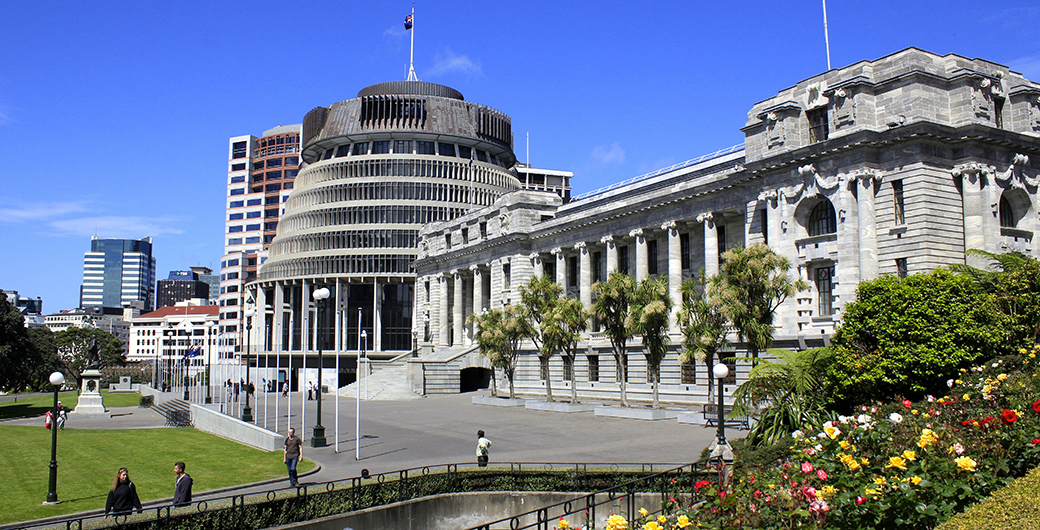Maintaining political neutrality while working in the Minister’s office
23 February 2021
● Research
How do non-partisan advisors in Ministers’ offices maintain political neutrality while immersed in a highly politicised environment? A paper in the Australian Journal of Public Administration present new insights into the tensions that can emerge.
About the research
The paper examines political neutrality based on interviews with Private Secretaries (public servants) who have worked in New Zealand Ministers’ offices. Portfolio Private Secretaries have been non-partisan representatives of the public service since the 1930s. Political neutrality is a key requirement for these roles.
The research involved semi-structured interviews with 15 people who held the role of Private Secretary between 1997 and 2018.
Related research:
The ‘purple zone’
There is a setting in the Minister’s office described as the purple zone. This is where politics (seen as a red zone) and administration (seen as a blue zone) merge when transforming political will into administrative action. These zones coalesce into a ‘purple zone’ where role separation is blurred and the energies of politics and administration blend creating tension.
The Minister’s office: actors partisan …
In New Zealand and Australia, roles in the Minister’s office are predominantly partisan and usually end when the Minister’s tenure ceases. Political advisors may be appointed because of their commitment to the policy or political preferences of the Minister. They are not required to be politically neutral.
They provide support to Ministers by:
- managing relationships with other political parties
- managing or ‘firefighting’ political risk
- negotiating support for policy and legislative initiatives
- contributing to policy development.
… and non-partisan
Private Secretaries are seconded to the Minister’s office from government departments. Their role is to liaise between the Minister’s office and the department as well as provide advisory and administrative support. Similar roles in other jurisdictions include Department Liaison Officers.
Private Secretaries are expected to have a range of skills including:
- relationship management
- resilience
- the ability to discern and navigate between public service and political activity.
They must demonstrate ‘political nous’ – an astuteness in understanding and negotiating the political environment.
Politicisation and neutrality
Coles states that politicisation occurs when:
- the distance between public servants and their political masters narrows
- public servants become unduly involved in the government’s ‘electoral fortunes’.
The paper sets out three categories of politicisation:
- Formal politicisation where merit-based criteria in recruitment and reward is replaced by political criteria.
- Functional politicisation when public servants become responsive to politicians rather than maintaining neutrality.
- Administrative politicisation where political advisors intervene in the relationship between the Minister and the public service, obstructing the delivery of free and frank advice.
Public servants are expected to embody ‘neutral competence’. They should be technically competent and politically neutral while carrying out their duties, fully committed to whichever government holds office.
What the research found
Political neutrality
All interview participants referred to the Private Secretary’s role as politically neutral and the expectation of impartial service of the government of the day. This required constant attention from Private Secretaries.
Managing boundaries
Significant energy and effort by Private Secretaries went into actively maintaining neutrality. The ability to self-manage the boundary of political neutrality was identified by respondents.
Politicisation
Participants described how they navigated between maintaining neutrality while meeting the Minister’s needs. Given Private Secretaries are the conduit between government departments and the Minister’s office, participants identified they also contributed to managing the risk of politicisation of departmental staff.
Challenges and strategies
The interviews revealed the challenges and personal strategies used by Private Secretaries to maintain neutrality in an intense and sometimes unsupportive environment.
- Personal integrity and a commitment to service influenced participants’ behaviour. Interviewees internalised the need to be impartial and were aware of their privileged position of trust.
- Feelings of powerlessness given Private Secretaries were placed subordinate to other staff in the Minister’s office. This meant making tough choices about whether to ‘push back’ or put up with politicised situations.
- Participants felt isolated and not well supported. They had to figure out how to navigate the purple zone while immersed in it. This led to a sense of being exposed and at risk.
- Political nous is a critical quality when navigating the complexity of the purple zone and serving the Minister. It was also seen as necessary to keep the department aligned with the fluid and sometimes mercurial priorities that can change within a day.
The bottom line
It is paradoxical that Private Secretaries maintain neutral and effective service to the Minister by practicing political skills. Upholding principles fundamental to public service while working in the Minister’s office involves significant effort and risk. It requires personal and (‘small p’) political strategies to manage the tensions inherent in the purple zone.
Want to read more?
Maintaining neutrality in the Minister’s office – Rose Cole, Australian Journal of Public Administration, December 2020
Each fortnight The Bridge summarises a recent piece of academic research of relevance to public sector managers.
Recent Research Briefs include:
- Beyond nudge: advancing the state-of-the-art of behavioural public policy and administration
- Trust in government increased during COVID-19 in Australia and Aotearoa-New Zealand
- Intensity of innovation in public sector organisations
- Published Date: 23 February 2021
